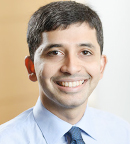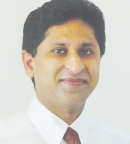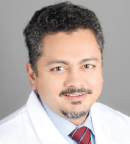The burgeoning pipeline of chimeric antigen receptor (CAR) T-cell therapies targeting B-cell maturation antigen (BCMA) in multiple myeloma was on full display at the 2018 American Society of Hematology (ASH) Annual Meeting & Exposition. A bispecific antibody also made its debut in this busy therapeutic field.
Among the presentations at the ASH meeting were early results for LCAR-B38M, which was highlighted in a press briefing prior to the meeting due to strong findings, along with JCARH125, bb21217, P-BCMA-101, BCMA-CART, CT053, and more.
CAR T-Cell Candidates in the United States
To date, bb2121 has been considered the pacesetter in the race for approval by the U.S. Food and Drug Administration (FDA), having received Breakthrough Therapy designation in 2017. At ASH, initial results were presented for a similar product, bb21217, which is built upon the bb2121 platform. The new CAR T-cell product is intended to improve cell persistence by modification of the manufacturing process to include a PI3K inhibitor; this is believed to drive T cells toward a memory-like phenotype, explained lead investigator Nina Shah, MD, of the University of California, San Francisco.

Responses [to bb21217] are deepening over time, and complete remission was achieved as late as month 10.— Nina Shah, MD
Tweet this quote
At the ASH meeting, Dr. Shah presented preliminary results from the phase I dose-escalation CRB-402 study in 12 patients.1 More than half the patients (58%) had high-risk cytogenetics, the median number of prior regimens received was 7, and 83% of patients had received a stem cell transplant.
The objective response rate at the first dose level tested was 83.3%, with complete response/stringent complete response seen in 25% and very good partial response or better in 50%. Although 67% of patients developed cytokine-release syndrome, all but 1 case was grade 1 or 2. Neurotoxicity occurred in 25%, Dr. Shah reported.
“Responses are deepening over time, and complete remission was achieved as late as month 10,” she said. “Responses are ongoing in all but 1 responder, and the first patient dosed continues in response more than 1 year after treatment. We saw 100% MRD [minimal residual disease] negativity in 4 of 4 responders evaluable for MRD status; both nonresponders were MRD-positive.”

JCARH125 was highly active in a heavily pretreated patient population with relapsed or refractory multiple myeloma, with limited follow-up so far.— Sham Mailankody, MBBS
Tweet this quote
Initial findings for JCARH125 were presented by Sham Mailankody, MBBS, of Memorial Sloan Kettering Cancer Center, New York.2 JCARH125 is a human-derived single-chain variable fragment (scFv) product with a lentiviral vector and 4-1BB costimulatory domain. Its structure and optimized manufacturing process enrich for central memory T-cell phenotype.
In the phase I/II EVOLVE study, 44 patients with highly refractory disease (median of 9 prior therapies, 64% with high-risk cytogenetics) received various doses of JCARH125. An objective response rate of 82% was achieved, with complete response/stringent complete
CAR T-CELL THERAPIES DISCUSSED IN THIS ARTICLE
- bb21217
- JCARH125
- MCARH171
- P-BCMA-101
- AMG 420
- LCAR-B38M (JNJ-68284528)
- CT053
- BCMA-CART
response seen in 27% and very good partial response or better seen in 48% of patients. Cytokine-release syndrome was observed in 80% of patients, with 9% having a grade ≥ 3 event. Neurotoxicity occurred in 18%, and 7% were grade ≥ 3.
“JCARH125 was highly active in a heavily pretreated patient population with relapsed or refractory multiple myeloma, with limited follow-up so far,” Dr. Mailankody said.
Data for 11 patients treated with MCARH171 in a dose-finding study were less encouraging. Therefore, future research at his institution will focus on JCARH125, rather than MCARH171, he said. A multicenter phase I/II trial of JCARH125 is underway.
Myeloma experts at ASH also cited P-BCMA-101 as a product to watch. P-BCMA-101 is manufactured using the “piggyback” approach, a nonviral system for DNA delivery plus a small human fibronectin domain for BCMA. Preclinically, the molecule resulted in higher levels of stem cell memory T cells.

At all doses, P-BCMA-101 induces high response rates and deep responses in a heavily pretreated relapsed/refractory multiple myeloma population, with responses still developing.— Krina K. Patel, MD, MSc
Tweet this quote
“We believe [stem cell memory T cells] in this product are the key to increasing the duration of response and reducing toxicity,” said Krina K. Patel, MD, MSc, of The University of Texas MD Anderson Cancer Center, Houston. Dr. Patel presented results from a phase I dose-finding study of 21 patients with relapsed or refractory myeloma who had received 3 or more prior lines of treatment.3
The highest dose yielded an objective response rate of 100%, with very good partial response or better seen in 68% of patients. At lower doses, nearly 70% still responded. Across doses, mild grades of cytokine-release syndrome were seen in 9.5% of patients.
“At all doses, P-BCMA-101 induces high response rates and deep responses in a heavily pretreated relapsed/refractory multiple myeloma population, with responses still developing,” Dr. Patel said. “The lack of significant toxicity may allow for greater patient access, such as through administration at community hospitals and/or outpatient sites.” The study is continuing to enroll, and a pivotal trial is being initiated.
New ‘Bispecific’ Antibody
Bispecific T-cell engager (BiTE) dual-targeting antibody constructs are designed to facilitate the immune attack on the tumor without removing immune cells from the patient. BiTE technology can provide “off-the-shelf” therapy that sidesteps the laborious process of processing and reinfusing CAR T cells. Some experts say “bispecifics” could challenge CAR T-cell therapies because they are simpler and potentially less toxic.

Max S. Topp, MD
Findings from a first-in-human trial of AMG 420 in 42 patients with relapsed or refractory myeloma, treated with a median of 4 prior lines of therapy, were presented by Max S. Topp, MD, of University Hospital of Würzburg, Germany.4 Patients received AMG 420 at varying doses up to 800 μg/d. Although 800 μg/d was not well tolerated, the optimal dose proved to be 400 μg/d. Among 10 patients given 400 μg/d, 7 (70%) responded, 6 of whom were still responding at 7.5 months; 4 were MRD-negative stringent complete responses, Dr. Topp reported, adding that since data cutoff, 2 more patients have responded.
One dose-limiting toxicity—peripheral polyneuropathy—was observed with doses up to 400 μg/d. The one patient experiencing this adverse event improved to baseline after treatment with intravenous immunoglobulin and a corticosteroid. A number of serious infections were seen with higher doses, and they will be further investigated.
Therapies in Development in China
LCAR-B38M (known as JNJ-68284528 in the United States) consists of two domains that target BCMA. The costimulatory domain is 4-1BB, and the agent is transduced with a lentivirus vector. “This property confers high avidity binding and distinguishes LCAR-B38M from other BCMA-targeted CAR T-cell therapies,” said lead investigator Wan-Hong Zhao, MD, PhD, of the Second Affiliated Hospital of Xi’an Jiaotong University in Shaanxi, China.

Wan-Hong Zhao, MD, PhD
Dr. Zhao presented an update of the LEGEND-2 study, which first generated excitement at the 2017 ASCO Annual Meeting. At the ASH meeting, Dr. Zhao reported data on 57 of 74 patients followed for 12 months who had relapsed on a median of 3 prior regimens, mostly including both a proteasome inhibitor and an immunomodulatory drug.5
The objective response rate was 88%, with a 74% rate of complete response/stringent complete response and 68% of patients achieving MRD negativity. The median progression-free survival was 15 months; median overall survival was not yet reached, and 75% of patients were alive at 12 months. “Response was achieved with low CAR T-cell doses,” he noted.
“Patients who did not achieve MRD-negative status had poor outcomes,” Dr. Zhao said. For that group, median progression-free survival and median overall survival were only 6 months and 8 months, respectively, compared to 24 months and “not reached” for MRD-negative patients. Cytokine-release syndrome occurred in 90% of patients, with grade 3 events in 7% but no grade 4 events. Grade 1 neurotoxicity was seen in 1 patient. A phase Ib/II study is ongoing in the United States, and a phase II study will soon be initiated in China.
Patients who receive high-dose CAR T cells may achieve better remission but have worse adverse events. To solve this dilemma, we have developed a novel autologous CAR T-cell therapeutic….— Songfu Jiang, MD
Tweet this quote
CT053 is another CAR T-cell construct in development in China. It was specifically designed with the hope of increasing tolerability, said Songfu Jiang, MD, of the First Affiliated Hospital of Wenzhou Medical University, Wenzhou, China.
“Patients who receive high-dose CAR T cells may achieve better remission but have worse adverse events. To solve this dilemma, we have developed a novel autologous CAR T-cell therapeutic that consists of genetically modified T cells comprising an extracellular anti-BCMA human scFv and an intracellular 4-1BB costimulatory motif connected to a CD3-zeta T-cell activation domain,” Dr. Jiang said.
Dr. Jiang presented phase I results in 14 evaluable patients who had received a median of 4 prior regimens.6 The objective response rate with CT053 was 100%, with complete response or stringent complete response seen in 35.7% and very good partial response or better in 42.9%. Cytokine-release syndrome was observed in 29% of patients, all low grade, and no neurotoxicity was reported.

Yarong Liu, PhD
The therapy known currently as BCMA-CART has a 4-1BB costimulatory domain, and the anti-BCMA scFv is transduced with a retrovirus vector. In the study presented at the ASH meeting, BCMA-CART was intended to rescue patients who relapsed after a median of five prior lines of treatment.7 “They had few remaining treatment options; Therefore, patients with an Eastern Cooperative Oncology Group (ECOG) performance status of 3 or 4 were allowed to enroll,” explained Yarong Liu, PhD, of HRAIN Biotechnology in Shanghai.
The objective response rate was 85%, -consisting of a complete response/stringent complete response rate of 40% and a very good partial response rate of 25%. Responses were observed regardless of ECOG performance status. The median progression-free survival was 15.0 months, with 45% of patients remaining in remission at 22 months. The median overall survival was not reached, and 79% of patients were alive at 22 months. Cytokine-release syndrome was experienced by 45% of patients and was grade 3 in one patient.
“BCMA-CART had promising efficacy at the infused dose, with only mild and manageable cytokine-release syndrome,” she concluded. “The CAR T cells expanded and persisted for a long duration in patients…. Patients with high ECOG scores still responded.”
CAR T-Cell Therapy Plus Transplant
Researchers in China are also pursuing the interesting strategy of tandem autologous transplant with combined infusion of CD19 and BCMA-specific CAR T cells for patients with high-risk myeloma that is not refractory to treatment. Results of the SZ-CART-MM 02 study were presented by Chengcheng Fu, MD, of the First Affiliated Hospital of Soochow University, Jiangsu, China.8
CAR T-CELL THERAPY IN MULTIPLE MYELOMA
- The development pipeline for multiple myeloma therapy is filled with multiple CAR T-cell products.
- Depending on prior regimens, response rates have ranged from 70% to 100%.
- Some treatments are designed to be more persistent and better tolerated.
- Side-effect profiles may determine which treatments move to the front of the line.
A total of 10 patients with high-risk myeloma underwent high-dose chemotherapy and transplant, followed by infusion with CD19-targeted CAR T cells and, a day later, with CAR-BCMA T cells. At the last assessment (> 90 days), 100% of patients had achieved a very good partial response or better, of which 50% were stringent complete responses. MRD negativity was achieved by 60%, and all responses were ongoing. CAR T-cell amplification was detectable for more than 1 year after infusion.
“The peaks of CAR T-cell amplification in patients with high-risk myeloma are achieved later but sustained longer as compared to those in relapsed or refractory patients…. The immune environment in high-risk patients remodeled by autotransplant may contribute to more expansion,” Dr. Fu said. “Toxicities to date, including cytokine-release syndrome and organ function impairment, seemed to be mild and reversible.” ■
DISCLOSURE: Dr. Shah reported consulting for Kite, Indapta Therapeutics, Amgen, Bristol-Myers Squibb, Sutro Biopharma, Nkarta Therapeutics, Nektar Therapeutics, TeneoBio, and Sanofi; has received research funding from Celgene, Janssen, Bluebird, Celgene, and Sutro Biopharma; and has equity ownership in Amgen. Dr. Mailankody has received honoraria from Physician Education Resources and research funding from Takeda, Janssen, and Juno. Dr. Patel has received research funding from Poseida Therapeutics. Dr. Topp has received honoraria from or served on the board of directors/advisory committees for Regeneron, Amgen, and F. Hoffmann-La Roche and has received research funding from Regeneron, Amgen, F. Hoffmann La-Roche, and Boehringer Ingelheim. Dr. Liu is employed by HRAIN Biotechnology. Drs. Zhao, Jiang, and Fu reported no conflicts of interest.
REFERENCES
1. Shah N, Alsina M, Siegel DS, et al: Initial results from a phase I clinical study of bb21217, a next-generation anti BCMA CAR T therapy. 2018 ASH Annual Meeting & Exposition. Abstract 488. Presented December 2, 2018.
2. Mailankody S, Htut M, Lee KP, et al: JCARH125, Anti-BCMA CAR T-cell therapy for relapsed/refractory multiple myeloma: Initial proof of concept results from a phase 1/2 multicenter study (EVOLVE). 2018 ASH Annual Meeting & Exposition. Abstract 957. Presented December 3, 2018.
3. Gregory T, Cohen AD, Costello CL, et al: Efficacy and safety of P-BCMA-101 CAR-T cells in patients with relapsed/refractory multiple myeloma. 2018 ASH Annual Meeting & Exposition. Abstract 1012. Presented December 3, 2018.
4. Topp MS, Duell J, Zugmaier G, et al: AMG 420, an anti-BCMA BiTE, induces MRD-negative CRs in relapsed/refractory MM patients: Results of a dose escalation FIH phase I study. 2018 ASH Annual Meeting & Exposition. Abstract 1010. Presented December 3, 2018.
5. Zhao W-H, Liu J, Wang B-Y, et al: Updated analysis of a phase 1, open-label study of LCAR-B38M, a chimeric antigen receptor T cell therapy directed against B-cell maturation antigen, in patients with relapsed/refractory multiple myeloma. 2018 ASH Annual Meeting & Exposition. Abstract 955. Presented December 3, 2018.
6. Jiang S, Jin J, Hao S, et al: Low dose of human scFv-derived BCMA-targeted CAR T-cells achieved fast response and high complete remission in patients with relapsed/refractory multiple myeloma. 2018 ASH Annual Meeting & Exposition. Abstract 960. Presented December 3, 2018.
7. Liu Y, Chen Z, Fang H, et al: Durable remission achieved from BCMA-directed CAR T-cell therapy against relapsed or refractory multiple myeloma. 2018 ASH Annual Meeting & Exposition. Abstract 956. Presented December 3, 2018.
8. Shi X, Yan L, Shang J, et al: Tandem autologous transplantation and combined infusion of CD10 and BCMA-specific CAR T cells for high-risk MM: SZ-CART-MM 02 study. 2018 ASH Annual Meeting & Exposition. Abstract 1009. Presented December 3, 2018.



